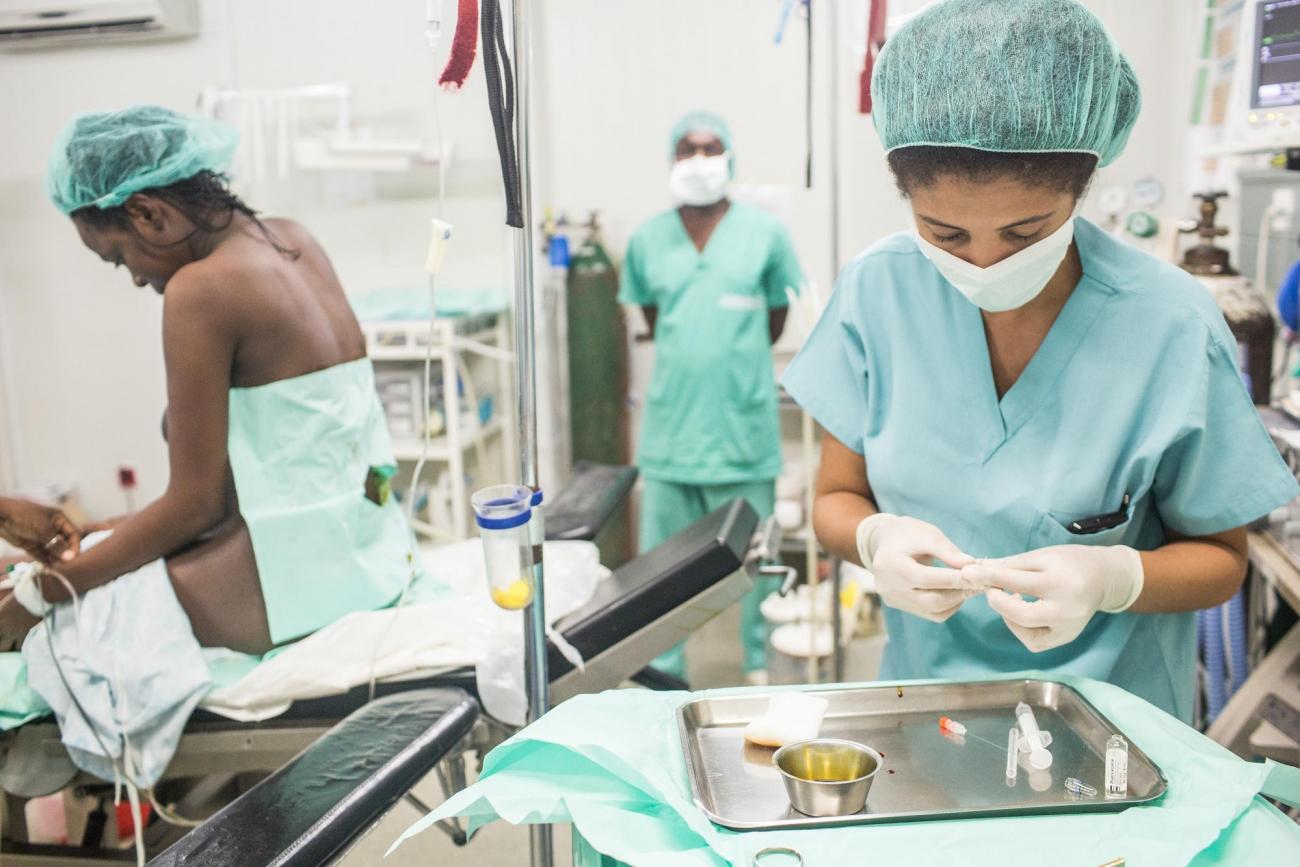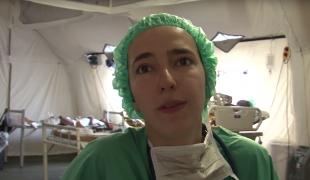
Profile
DIPLOMA
- successful completion of basic medical or nursing training, and a specialist diploma in anaesthesia required
- current matriculation in Medical Council/Board
EXPERIENCE
- medical anaesthetists who complete a comprehensive training program in anaesthesia are eligible for expatriation
- nurse anaesthetists must have two years of experience beyond their training and be able to work autonomously in the administration of all types of anaesthesia
AVAILABILITY
- 1 to 6 months
LANGUAGES
- basic English skills highly desired
SKILLS
- able to work in multicultural and multi-disciplinary teams, with excellent inter-personal skills
MSF is urgently looking for anaesthetists for its missions on the field.
Anaesthesia services in MSF surgical projects are provided by qualified medical anaesthetists and/or nurse anaesthetists, depending on the regulatory environment of the context, and the specific needs of the project. Both categories of anaesthesia providers are responsible for the safe delivery of pre-operative care, intraoperative and post-operative care. A crucial element of anaesthesia care is also the provision of appropriate pain management in accordance with established MSF protocols. The medical anaesthetist may also serve as a general consultant in resuscitation and critical care for the projects. Both medical and nurse anesthetists often work with national anaesthetists with the goal of improving their skills and capacitance in the safe provision of anaesthesia.
The total number of interventions performed under anaesthesia care in 2021 grew by 9.4% with 40,820 procedures documented for 17,888 patients in 17 established projects and 5 emergency responses centres.The number of anaesthesia procedures performed on children increased by 12.5% in 2021. Children under 15 years of age remain an important population for MSF surgical and anaesthesia services comprising a quarter of all patients for the last four years.
82 anaesthesia providers departed on field assignments in 2021.
Activities
The qualified medical or nurse anaesthetist administers anaesthesia in the operating theatre. The anaesthetist may work alone, in collaboration with national anaesthesia staff, or as an anaesthesia care team of both doctors and nurse anaesthetists. These activities include the following:
- provides pre-operative consultations for patients undergoing surgical or diagnostic procedures (prior health history, assessment of surgical and anaesthesia risk factors, conducts in-depth physical examination, secures additional preoperative testing if necessary, etc.), develops anaesthetic care plan based on patient evaluation and surgical procedure;
- prepares the equipment then administers the anaesthesia, provides ongoing assessment of the efficiency/safety of the anaesthesia underway, and monitors the patient's vital parameters throughout the procedure;
- monitors and delivers post-operative care: Insures safe transfer of the patient to the recovery room and handover to the staff, verifies the adequate recovery of the patient and institutes measures needed for any incident of shock, evaluates pain and initiates a post-operative analgesic treatment protocol, discusses patient management decisions with the doctor in charge of the department;
- oversees and/or manages anaesthesia material and medicines, regularly monitors equipment and drug inventories, collaborates with project pharmacists in ordering necessary items, insures adherence to hygiene protocols.
The role of the medical anaesthetist in certain projects is to support the care of patients in intensive care and serve as a general consultant in resuscitation and in complexly ill patients.
Notes
News related to this job
